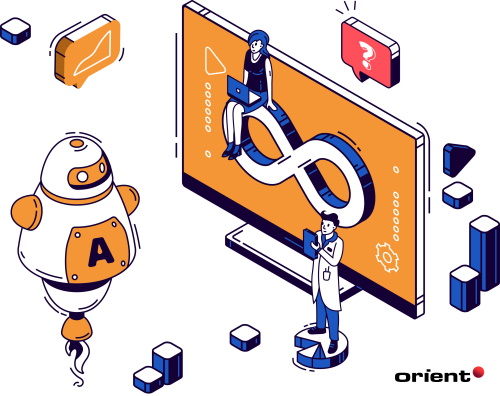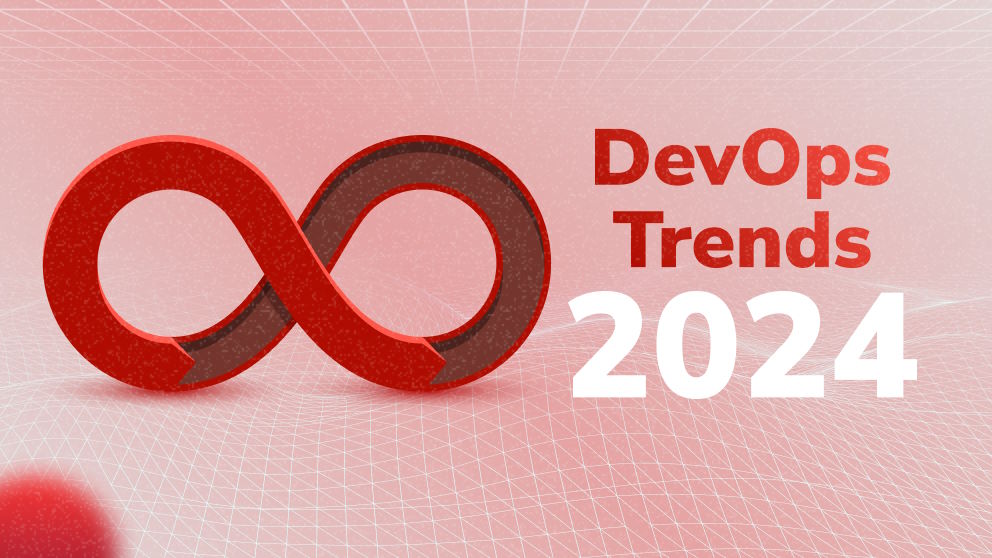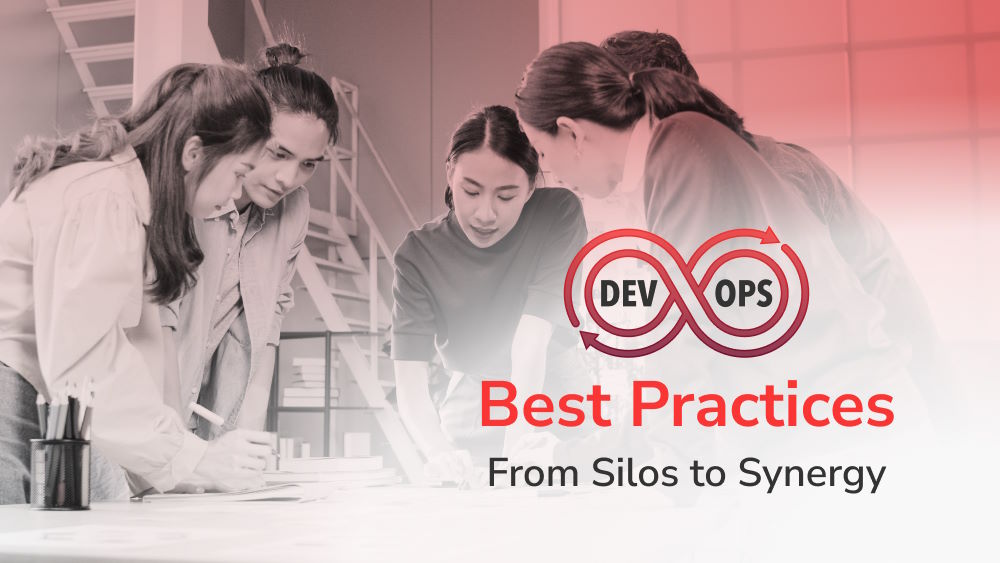The Business Benefits of AI in DevOps

Content Map
More chaptersThe Beginning of DevOps
Prior to the advent of DevOps, the traditional software development cycle was siloed. This meant the people responsible for writing code - aka software developers - were separated from those who would deploy and support the code - aka the IT operational team. This disparity often led to internal conflicts, longer development cycles, lower quality software, and unsatisfied customers.
Between 2007 and 2009, on online forums and in local meetups, software development and IT operations communities rallied for change. They envisioned a world where developers and operations teams worked together, at every step of the development cycle, from planning and building to monitoring and iterating. Fast forward to today, DevOps has achieved widespread adoption. What’s more, it has evolved to include automation and Artificial Intelligence (AI), which aim to streamline the merging and deployment of code.
What is DevOps?
DevOps is a combination of Development and Operations. It incorporates a cultural mix of tools, practices, procedures, and policies, all of which are designed to improve an organization’s ability to develop and deploy a software application or service. It also incorporates continuous feedback into the product lifecycle, from concept and design to coding, testing, and launch. This helps the team identify bugs early, release higher quality products, and push more frequent updates.
What is Artificial Intelligence?
Artificial Intelligence (AI) is a branch of computer science. It focuses on building smart machines that are capable of performing tasks which typically require human intelligence. This extends to engaging in human-like activities, such as learning, planning, and solving problems.
Over the years, businesses have made it a priority to incorporate AI into their workflow and practices. Some businesses want to use AI to replace the need for human workers to perform frequent, repetitive tasks. Others want to use AI as a supporting tool to help human workers do their jobs faster, more efficiently, and with greater accuracy and success.
The use of AI in a business can also free up time for human workers, so they can focus on deeper, more complex tasks that AI cannot do. This allows them to innovate in new and exciting ways that have yet to be discovered.
Advantages of AI in DevOps
AI can help streamline the DevOps cycle in many ways. It can help save time on repetitive manual labor, identify security vulnerabilities, optimize performance, and improve collaboration between the software development and IT operations teams. Automated software testing can also speed up the development cycle, so that a product gets to market sooner. Here are some of the benefits that AI can bring into the DevOps cycle:
Reduced Manual Labor
Automated code reviews can help speed up the software development cycle. AI can be used to perform tests that would otherwise be too timely and costly for a human to do. These include minor code reviews, where even the slightest change in code can lead to new, unforeseen errors. With AI, code reviews can be performed often at each stage of the development cycle, so that anomalies can be rectified early.
Improved Security
Over time, properly trained AI learns from experience. It can use that knowledge to identify trends, patterns, and anomalies in user behavior. For example, AI can help spot when a user’s confidential data is at risk of being stolen, such as through a DDos (Distributed Denial of Service) attack. And it can identify the risks early. This makes it easier to implement the right security measures, before the code becomes too large, complex, and hard to navigate. Plus, with automated compliance controls, teams can comply with industry-specific security requirements more easily.
Improved Collaboration and Communication
Integrating AI into the DevOps framework helps foster more collaboration and communication. How so? Because the IT operations and development teams can work together to train, monitor, and assess the AI. Together, they can decide what data to give the AI, the kind of tasks it should perform, and the kind of outcomes it should aim for. As a result, both teams will be in agreement as to how the process will unfold, and what the goals will be.
Continuous Feedback Loop
Unless you know something is wrong with your software, you won’t know what needs to be fixed. Using AI in DevOps aims to resolve this issue, by making it easier to implement continuous feedback into the lifecycle of the product. By using monitoring tools and machine learning to gather data from log files, spreadsheets, matrixes, and more, this helps the team identify issues and follow suggestions to remedy the situation.
How AI in DevOps Can Help Your Business
As a business owner, you have a lot of important choices to make. These choices can impact the productivity and efficiency of your business, including your cash flow and budget. For this reason, it’s vital to understand why AI in DevOps matters, especially when it comes to running your business.
Businesses Can Use AI to Make Sense of The Data They Collect.
AI can collect data from multiple sources, categorize it, and present it to the DevOps teams in a way that they can understand. Furthermore, the data the DevOps team receives will be actionable. Therefore, they will gain valuable insights and make vital decisions.
AI Can Greatly Improve The Quality of The Software a Company Releases
Software development companies that use AI are more likely to produce better products. This is because they can use AI to automate the testing process, identify code anomalies and security vulnerabilities, and also optimize the user experience. Bug prevention leads to better software on launch, leading to more satisfied customers.
AI in DevOps can Provide Real-time Alerts
AI can be used to prioritize the most critical issues, by training the AI to gather data from all relevant problems. Depending on the severity of the problem, and the potential impact it could have on the business, the AI will prioritize alerting the user to the right problems. The AI can also recommend solutions to help the business rectify the problem quickly.
Final Thoughts

For companies wanting to accelerate and improve their DevOps cycle, AI is a promising solution.
AI can help your business save time and money on manual labor, eliminate human errors, identify bugs and security vulnerabilities, and release higher quality software. Moreover, AI in DevOps can improve collaboration between the development and operations team, by giving both teams a unified view into every aspect of a project.
By removing inefficiencies from the DevOps cycle, teams have more control over each step of the development process and more data to make informed decisions. The result? More time for the teams to focus on creativity and innovation.







